One of the greatest composers in the history of music, Joseph Haydn, lived in London for four years during the 1790s, just as the Napoleonic conflict was beginning to convulse Europe. The King of England George III himself had mused on bringing the Viennese composer here, and several music-loving earls had sent invitations, all of which had gone unanswered. In the end, a German violinist resident in London, John Peter Salomon, took matters in hand and travelled to Vienna to fetch the 58-year-old himself. Haydn was flattered and set off immediately. He left behind his wife, with whom, sadly, he was ill-matched. Led by Salomon, he arrived on New Year’s Day 1791 and took lodgings next to the violinist in Great Pulteney Street Soho, which had just been built. A blue plaque now marks the spot.
Joseph Haydn was amazed at how famous he was. For decades, he had worked in relative obscurity composing symphonies, string quartets, operas, and piano sonatas for a Hungarian patron who financed his own court orchestra. Unknown to the composer, his works had found their way into the major cities around Europe, and his name was a byword for excellence in musical circles. Suddenly he was a celebrity and a much sought-after guest. He knew no prouder moment than when the king greeted him without waiting for an introduction. A wealthy widow, Rebecca Schroeter, sent him a calling card on a silver tray and a request for piano lessons. They became constant companions during his stay. He was footloose, fancy-free, and off on a jaunt in his retirement.
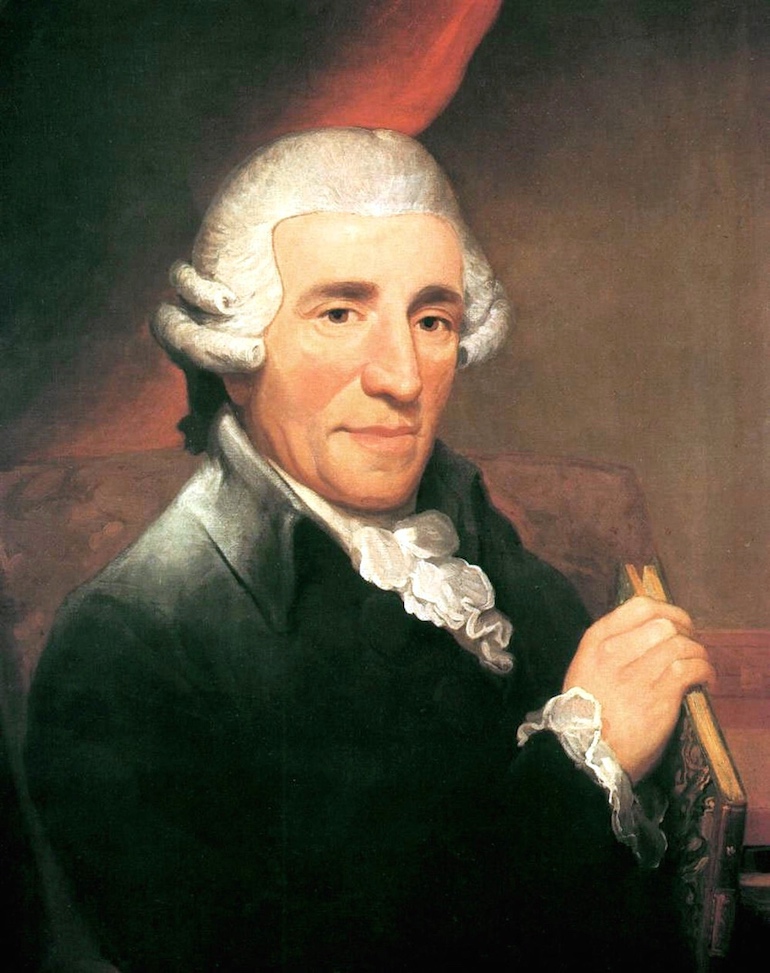 Portrait of Joseph Haydn by Thomas Hardy (1791). Photo Credit: © Wikimedia Commons.
Portrait of Joseph Haydn by Thomas Hardy (1791). Photo Credit: © Wikimedia Commons.
Joseph Haydn In London
While in London, Joseph Haydn honoured the city with a dozen symphonies, a form of which he was the acknowledged master. The idea of going out simply to listen to a piece of abstract music was new in the eighteenth century. Music had been previously been only an accompaniment to words or a dance; now, an audience was sitting still and enjoying pure melody. How would Herr Haydn entertain us this evening? Londoners asked. No. 94 has a pin-drop, barely audible tune ending with a sudden thunderous chord which doubtless raised a titter. It became known as The Surprise. Six of the London symphonies acquired nicknames which was a measure of their popularity.
These concerts were put on at The Kings Theatre in the Haymarket (now Her Majesty’s) or the Hanover Square Rooms (which no longer exist). At the end of one performance at The King’s, the chandelier crashed down. Amazingly no one was hurt. No. 96 was forever afterward called The Miracle for this reason. Today Her Majesty’s is the venue for Andrew Lloyd Webber’s musical The Phantom of the Opera, in which the chandelier crashes down at the climax!
Because of Napoleon, Europe militarised in the 1790s. Men in uniform danced at the balls. Symphony No. 100 became known as The Military. It was published everywhere from London to Vienna, where its catchy marching theme transformed itself in the mind of a young Viennese composer of waltzes and polkas into the even more famous Radetzky March, the hit of the Vienna Congress when the bloodshed ended. What terror had been unleashed in France by the guillotine: some 6,000 aristocrats went under its blade as the crones knitted and the drums rolled. Symphony No. 103 starts with the dread sound and is called The Drumroll. The audience quaked.
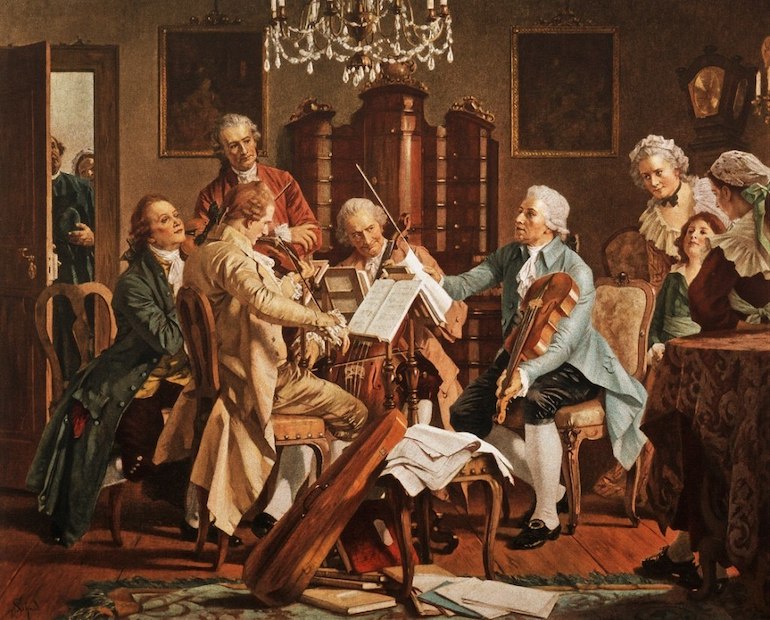 Joseph Haydn Playing Quartets. Photo Credit: © Public Domain via Wikimedia Commons.
Joseph Haydn Playing Quartets. Photo Credit: © Public Domain via Wikimedia Commons.
Napoleon pounded the cities Putin-wise and refugees were a common sight in Europe. Soho filled with Swiss clockmakers which accounts for the name of the pub opposite Haydn’s Great Pulteney Street plaque, The Sun and Thirteen Cantons. There are twelve in Switzerland: the thirteenth is where you happen to be as an exile. The horologists left their mark and Symphony No. 101 The Clock has a tick-tocking cello beneath a wistful fiddle tune. In 1795, with the symphonies completed, Salomon asked Joseph Haydn if he wouldn’t remain in London, live out his last years here, a permanent exile. Haydn considered the proposition but decided his country needed him more, and he returned to his wife in Vienna.
In his last days, Joseph Haydn could be heard hammering away at the piano, playing incessantly the patriotic tune he’d composed as a match for Great Britain’s God Save The King. The words were the German equivalent, Gott erhalte Franz den Kaiser, and it would in time become the German national anthem. Even those who claim not to know any music by Joseph Haydn know that one.
Note: Rick Jones is a London Blue Badge Tourist Guide and leads a Haydn and the Guard Change Tour every Monday at 10 am from Piccadilly Circus. Get in touch via his Guide London profile page to find out more details about this tour.



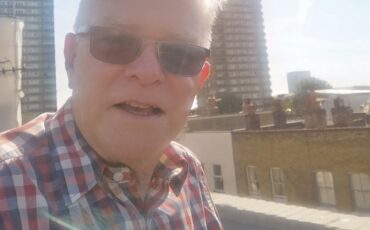
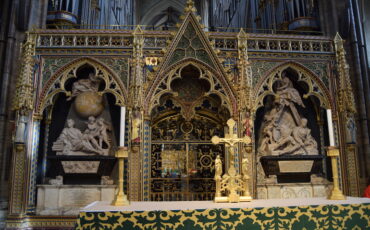
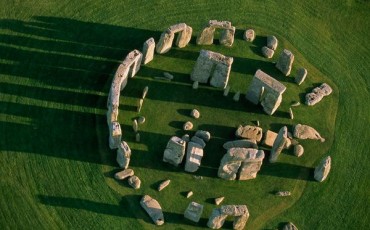
Leave a Reply